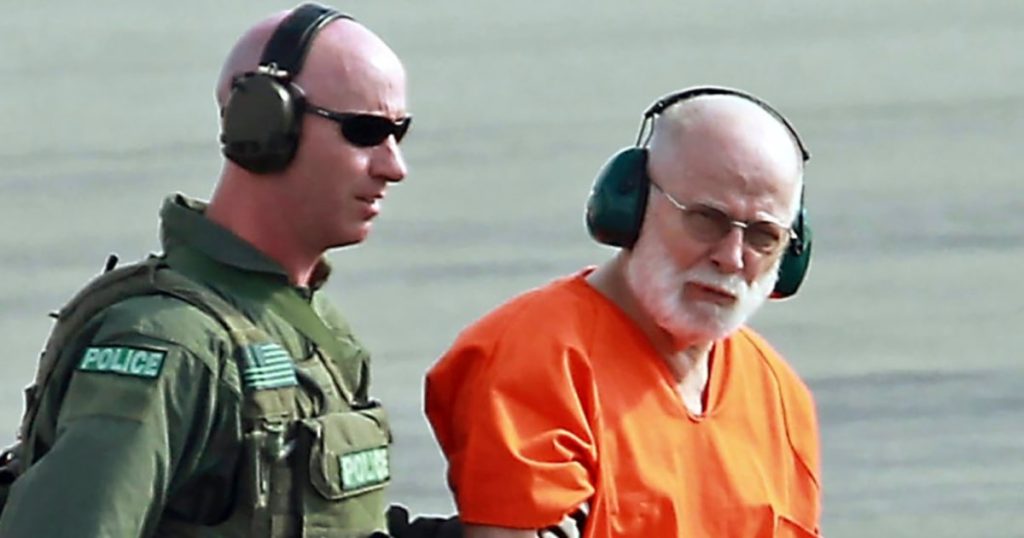In Clarksburg, West Virginia, Massachusetts gangster Paul J. DeCologero is set to be sentenced in the fatal bludgeoning of notorious Boston gangster James “Whitey” Bulger. DeCologero made a deal with prosecutors to change his plea from not guilty in the case. Along with another inmate, Fotios “Freddy” Geas, they used a lock attached to a belt to repeatedly hit Bulger in the head shortly after his arrival at a troubled West Virginia prison in October 2018. According to an inmate who testified before a grand jury, DeCologero referred to Bulger as a “snitch” and they had planned to kill him as soon as he arrived in their unit at United States Penitentiary, Hazelton. Both DeCologero and Geas were charged with murder and conspiracy to commit first-degree murder, which carries a potential life sentence. Last year, the Justice Department announced it would not seek the death penalty for them.
The upcoming sentencing for DeCologero is scheduled to occur in U.S. District Court in northern West Virginia. It remains unclear how DeCologero will plead, but the court has set the sentencing for the same hearing. Geas is expected to have a similar hearing on September 6th. Another inmate, Sean McKinnon, who acted as a lookout during the incident, pleaded guilty in June to lying to FBI special agents about his role. McKinnon was not given additional prison time and was sent back to Florida to complete his supervised release. The situation surrounding the murder of Bulger has drawn significant attention due to his notorious criminal history.
James “Whitey” Bulger was a prominent figure in the Boston mob scene during the 1970s and 1980s, leading the largely Irish mob in the area. After fleeing Boston in 1994, he became one of the nation’s most wanted fugitives. Bulger was apprehended at the age of 81 after more than 16 years on the run, and in 2013, he was convicted of 11 murders and numerous other gang-related crimes. His violent past and involvement in criminal activities contributed to his infamy, making his murder in prison a high-profile case. The circumstances surrounding his death and the individuals involved in the attack have raised questions about the safety and security within the prison system, particularly in facilities that house high-profile and dangerous criminals.
The decision not to seek the death penalty for DeCologero and Geas in connection to Bulger’s murder reflects broader trends in federal prosecution priorities. The Justice Department’s stance on capital punishment has shifted over time, with certain cases now being exempt from seeking the ultimate penalty. The potential life sentence DeCologero and Geas face still carries a significant weight, as they await their sentencing hearings in connection to their roles in Bulger’s death. The outcome of these proceedings will bring a sense of closure to a chapter in the ongoing saga of Whitey Bulger’s criminal legacy and the impact he had on the Boston underworld.
The case highlights the dangers and complexities of the criminal underworld, even behind bars. Inmates like DeCologero and Geas, with their violent histories and ties to organized crime, continue to pose threats to others while incarcerated. The calculated assault on Bulger underscores the lawlessness and brutality that can exist within prison walls, where personal vendettas and allegiances can lead to deadly consequences. The involvement of multiple inmates in planning and carrying out the attack demonstrates the challenges faced by correctional facilities in maintaining order and preventing acts of violence among inmates. The aftermath of Bulger’s murder serves as a reminder of the ongoing battle against criminal activity and the efforts to ensure the safety of both inmates and staff within the prison system.
As DeCologero faces his sentencing, the outcome of the proceedings will serve as a form of justice for the murder of James “Whitey” Bulger. The legal process, from the initial investigation to the final sentencing, has shed light on the circumstances surrounding Bulger’s death and the individuals responsible for carrying out the attack. The legacy of Whitey Bulger, from his criminal empire to his time as a fugitive, continues to capture public interest and intrigue. The resolution of this case will provide closure to those affected by Bulger’s crimes and offer accountability for the individuals who took part in his demise. The impact of Bulger’s murder, both within the prison system and in the larger context of organized crime history, will be closely watched as the legal proceedings unfold and justice is served.


